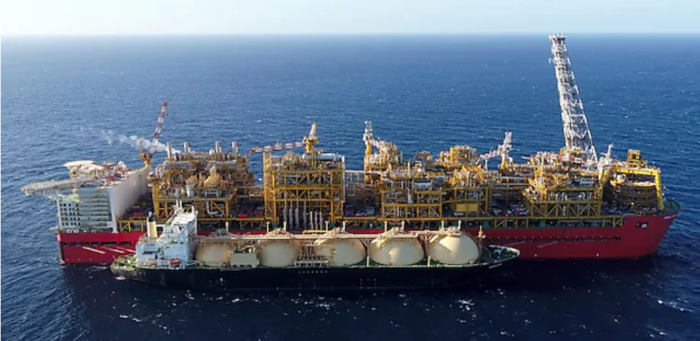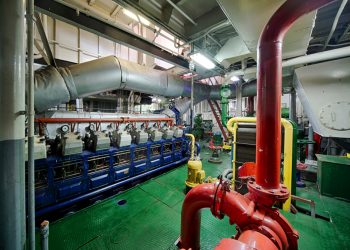Following last year’s announcement of its ambition to become a net-zero emissions energy business by 2050, oil major Shell now set out details of how it will achieve the target to accelerate its transformation into a provider of net-zero emissions services.
This target covers the emissions from its operations, the emissions from the use of all the energy products that the comapny sells, and, more importantly, the emissions from the oil and gas that others produce and Shell then sells as products to customers.
Our accelerated strategy will drive down carbon emissions and will deliver value for our shareholders, our customers and wider society. We must give our customers the products and services they want and need – products that have the lowest environmental impact. At the same time, we will use our established strengths to build on our competitive portfolio as we make the transition to be a net-zero emissions business in step with society,
…said Royal Dutch Shell Chief Executive Officer, Ben van Beurden.
[smlsubform prepend=”GET THE SAFETY4SEA IN YOUR INBOX!” showname=false emailtxt=”” emailholder=”Enter your email address” showsubmit=true submittxt=”Submit” jsthanks=false thankyou=”Thank you for subscribing to our mailing list”]
The announcement came as Shell unveils a reshaped organization aimed at ‘Powering Progress’ in the three business pillars of Growth, Transition and Upstream: generating shareholder value, achieving net-zero emissions, powering lives and respecting nature. The company also confirmed its expectation that total carbon emissions for the company peaked in 2018, and oil production peaked in 2019.
The road to net-zero emissions Powering Progress supports the most ambitious goal of the Paris Agreement on climate change to limit the global temperature rise to 1.5° Celsius. As such, to achieve net zero, Shell: The Energy Transition Shell’s aim is to build material low-carbon businesses of significant scale by the early 2030s. Upstream will continue to deliver vital energy supplies, which will help to generate the cash and returns needed to fund shareholder distributions while accelerating investment in the growth businesses to capture new market opportunities. In the near term, Shell’s strategy will rebalance its portfolio, investing annually $5-6 billion in its Growth pillar (around $3 billion in Marketing; $2-3 billion in Renewables and Energy Solutions), $8-9 billion in its Transition pillar (around $4 billion Integrated Gas; $4-5 billion Chemicals and Products) and around $8 billion in Upstream. Plans include: –> GROWTH: In its growth pillar, Shell aims a growth of global electric vehicle (EV) network from more than 60,000 charge points today to around 500,000 by 2025. It also seeks to extend its biofuels production and distribution business, which in 2019 sold more than 10 billion litres of biofuels. Our joint venture Raízen, which produces low-carbon fuels from sugar cane in Brazil, recently announced the acquisition of Biosev. This is set to increase Raízen’s bioethanol production capacity by 50%, to 3.75 billion litres a year, around 3% of global production. In addition, the company aspires developing integrated hydrogen hubs to serve industry and heavy-duty transport, to achieve double-digit share of global clean hydrogen sales, while it also expects to invest around $100 million a year in high-quality, independently verified projects on the ground to build a significant and profitable business to help customers meet their net-zero emissions targets. –> TRANSITION: In its transition pillar, Shell seeks to extend leadership in LNG volumes and markets, with selective investment in competitive LNG assets to deliver more than 7 million tonnes per annum of new capacity on-stream by middle of the decade. Meanwhile, it aims to continue to support customers with their own net-zero ambitions, with leading offers such as carbon-neutral LNG. Furthermore, Shell expects to transform its refinery footprint from 13 sites today to six high-value Chemicals and Energy Parks and reduce production of traditional fuels by 55% by 2030. Intention to grow volumes of the chemicals portfolio and increase cash generation from Chemicals by $1-2 billion a year by 2030 compared with the medium term. Will produce chemicals from recycled waste, known as circular chemicals, and by 2025 aim to annually process 1 million tonnes a year of plastic waste. –> UPSTREAM: In its Upstream pillar, Shell expects to focus on value over volume, being simpler and more resilient, continuing to provide material cash flow into the 2030s. It also expects a gradual reduction in oil production of around 1-2% each year, including divestments and natural decline. In September 2020, Shell noted the importance of collaboration for achieving tangible results in emissions reduction, setting a course of key actions it will undertake:
further build the commercial case for our unique industry offering of carbon neutral lubricants through development of our nature-based solutions portfolio; and


































































